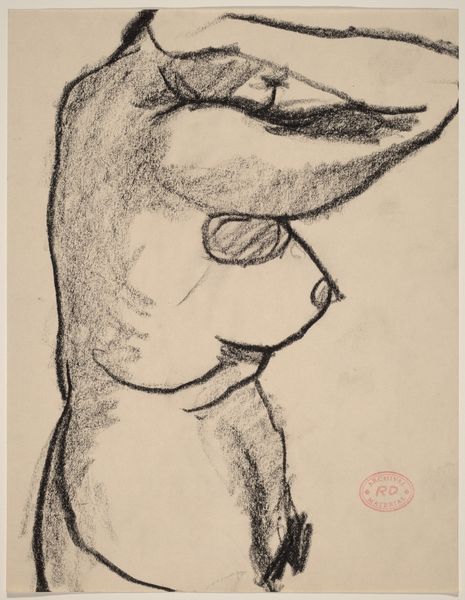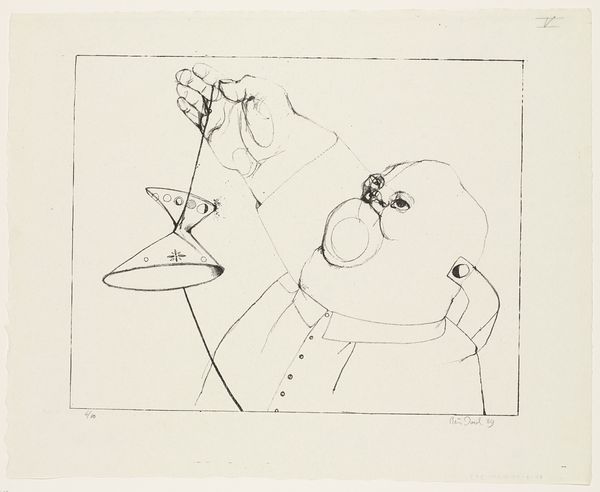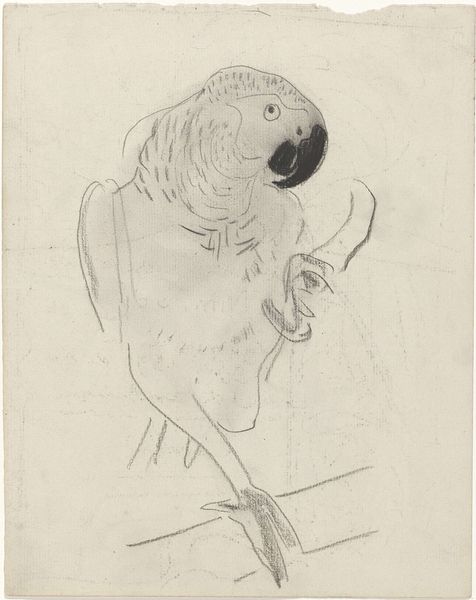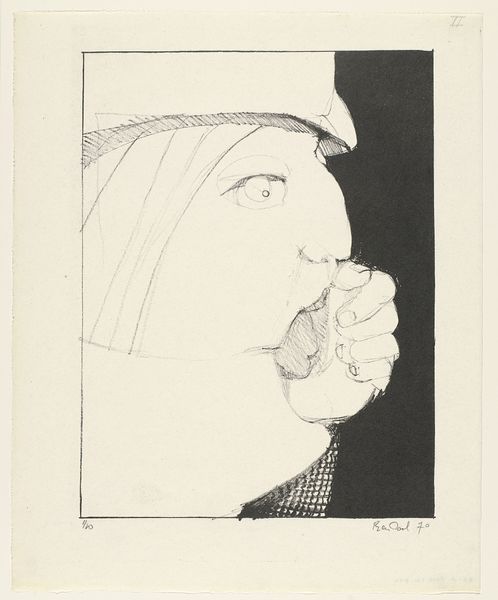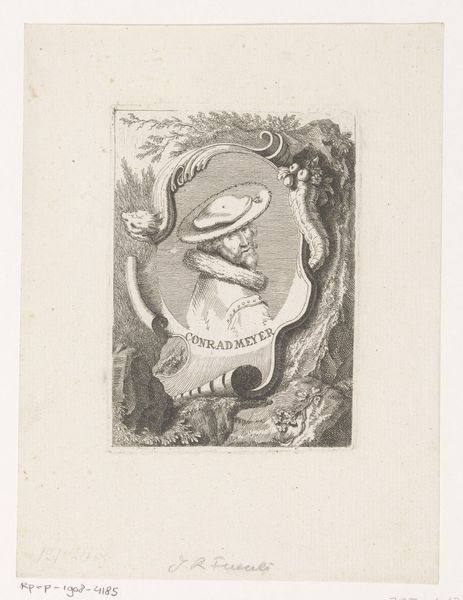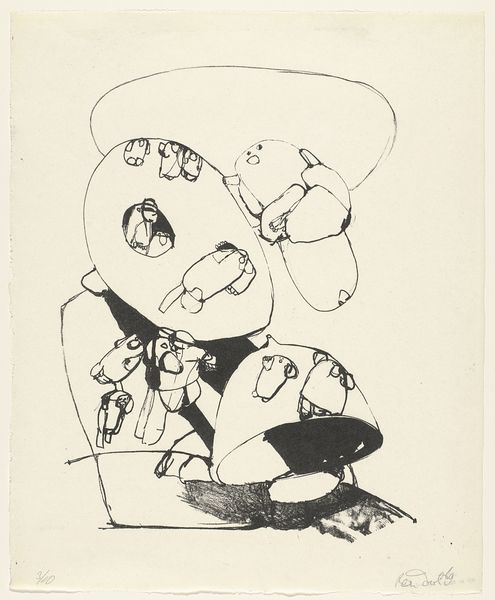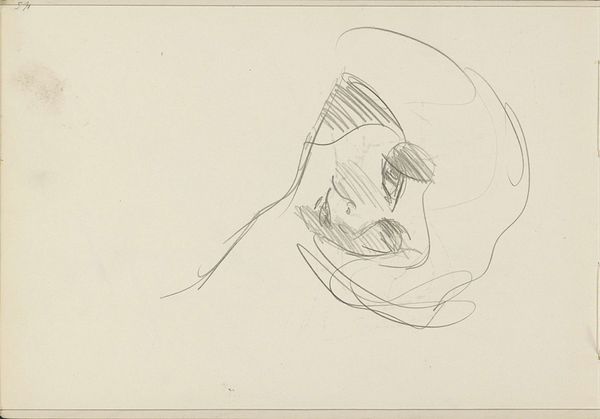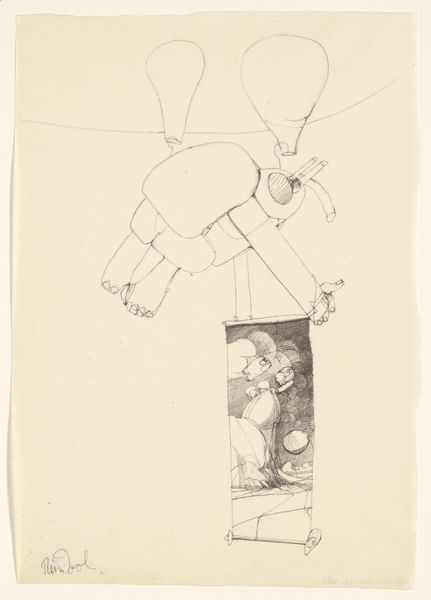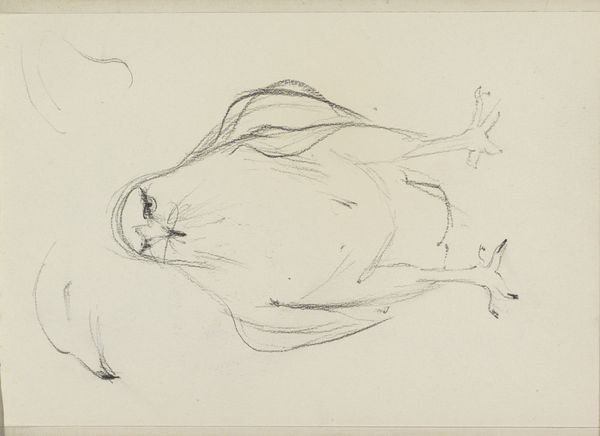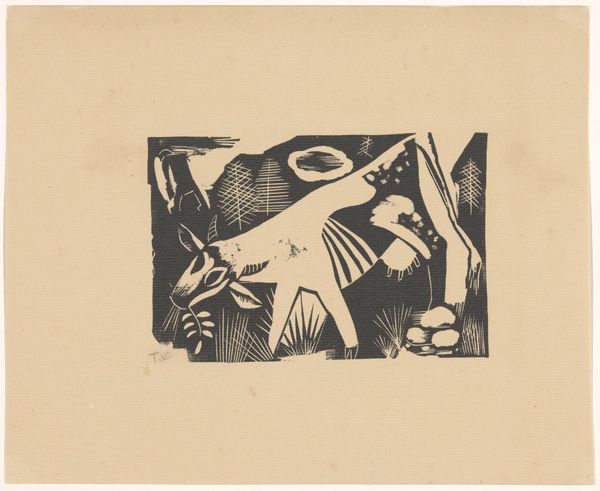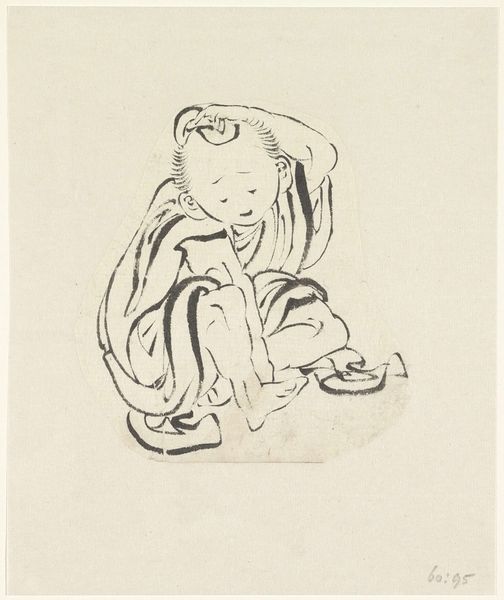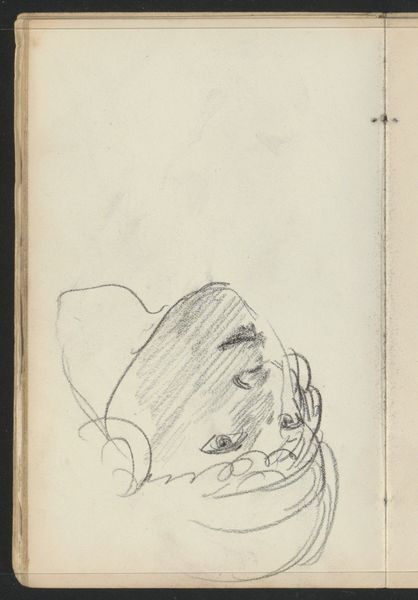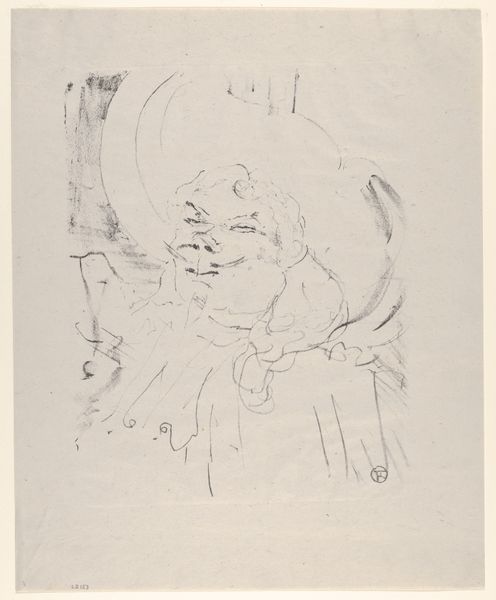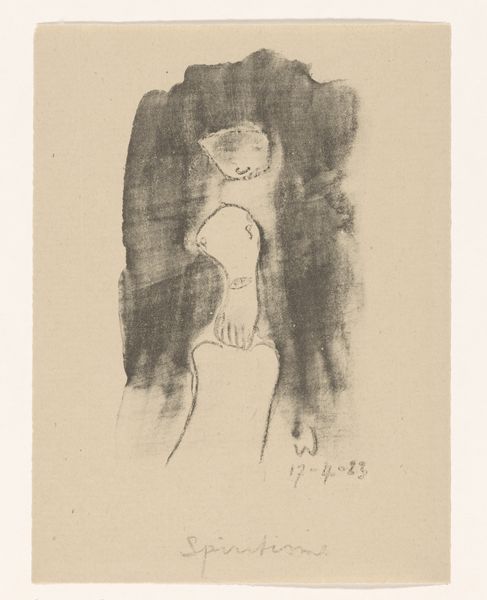
Fantasie: mannenkop met scheve muts, half over het rechteroog 1918
0:00
0:00
samueljessurundemesquita
Rijksmuseum
drawing, paper, ink
#
portrait
#
drawing
#
pen illustration
#
caricature
#
caricature
#
paper
#
form
#
ink
#
expressionism
Dimensions: height 280 mm, width 220 mm, height 223 mm, width 175 mm
Copyright: Rijks Museum: Open Domain
Editor: Here we have Samuel Jessurun de Mesquita's 1918 ink drawing, "Fantasie: mannenkop met scheve muts, half over het rechteroog," currently residing at the Rijksmuseum. It's... unsettling. The warped features and almost manic expression are very striking. What's your interpretation? Curator: That unease is understandable. Mesquita's work, even before his tragic end during the Holocaust, often grappled with the grotesque and the unsettling. Think about the social climate of 1918. Europe had endured years of war, and traditional structures were collapsing. Could this distorted figure, with its askew hat, be a comment on the fracturing of masculinity or perhaps the loss of control in the face of overwhelming societal trauma? How does this historical context change your view? Editor: I see your point. Considering the post-war atmosphere, the caricature feels less random and more like a statement. But the exaggerated features, are they simply for shock value, or are they a method of emphasizing underlying traits or stereotypes? Curator: Exactly. Caricature has historically been a powerful tool, both to lampoon figures of authority and to perpetuate harmful stereotypes. Mesquita was of Sephardic Jewish descent himself, making the analysis even more fraught with difficult but essential questions about self-representation, ethnic identity, and the dangers of internalised anti-semitism. It forces us to consider how artists use distortion, exaggeration, and humor as methods of critique, defiance, and potentially, even self-deprecation. What are your thoughts? Editor: This drawing certainly opens up a Pandora’s Box of questions about identity and representation. Thank you! Curator: And thank you for encouraging a richer, more contextual understanding of the piece.
Comments
No comments
Be the first to comment and join the conversation on the ultimate creative platform.
